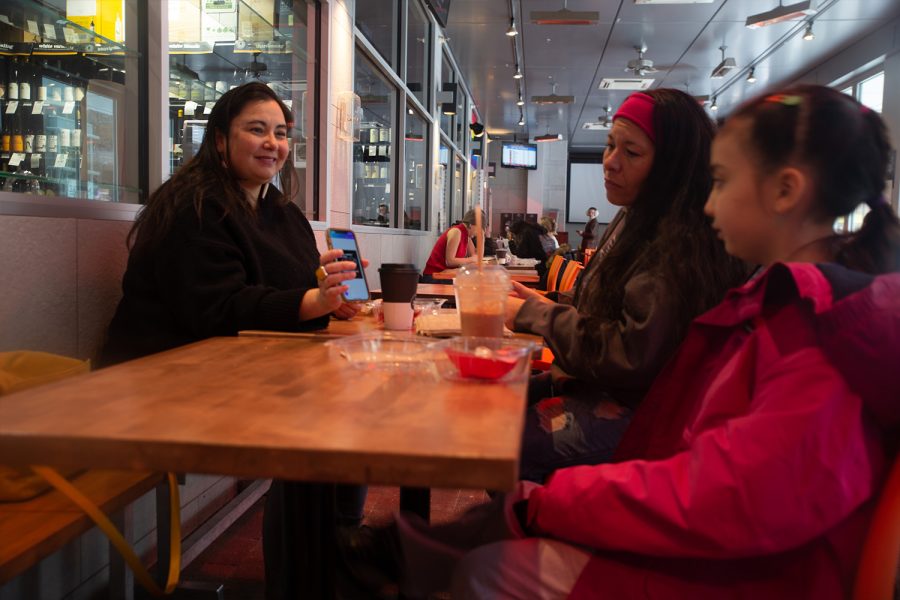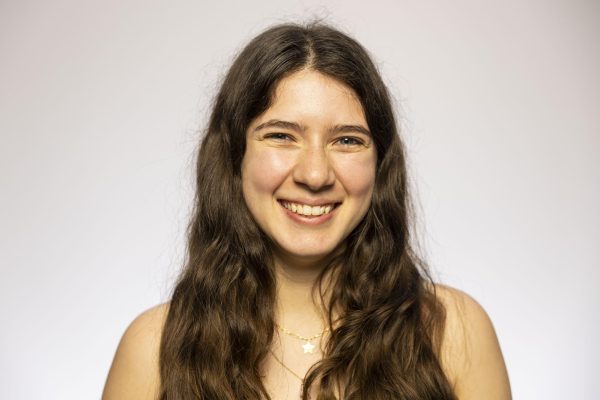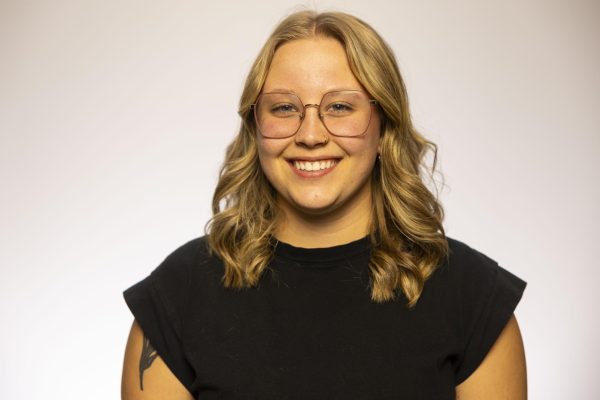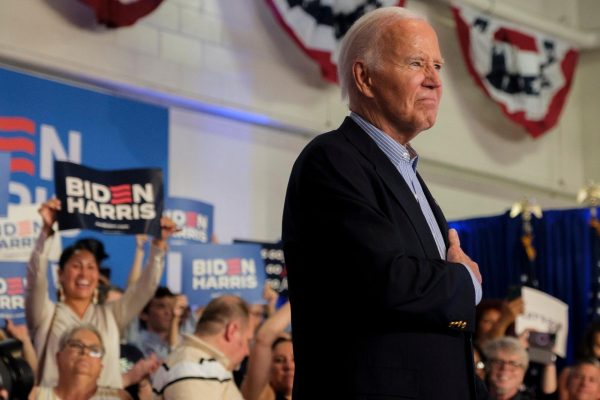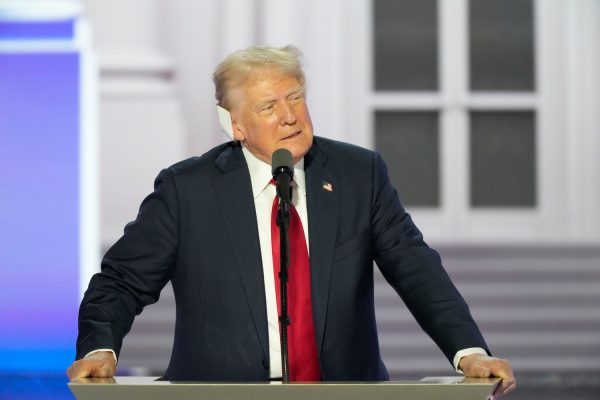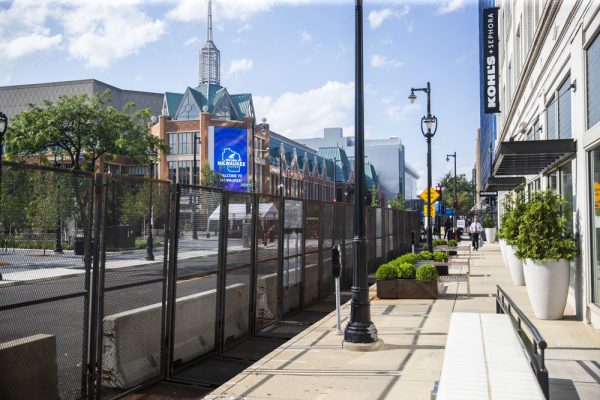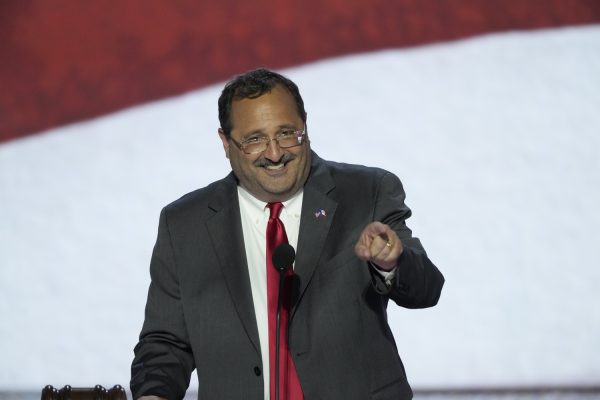Indigenous community members speak out following racism allegations in Iowa City school district
Parents and students who have experienced discrimination hope things will improve after meeting with the city and the school district.
Marie Krebs sits down for coffee with Sikowis Nobiss and her daughter at Bread Garden Market in Iowa City on Saturday, Jan. 28, 2023. Nobiss and Krebs are mothers of multiple indigenous children who had negative experiences with the representation of indigenous culture and recently brought concerns to the Iowa City Human Rights Commission.
January 29, 2023
Sikowis Nobiss, a member of Plains Cree/Saulteaux of the George Gordon First Nation, has enrolled all of her children in the Iowa City Community School District. Each child had a negative experience regarding representation of Indigenous culture, from inaccurate curriculum to offensive school programs.
The breaking point for Nobiss came in late 2022 when she watched a school program at Shimek Elementary School. During the program, her daughter and other children were told to dance to traditional powwow music used by Indigenous people.
“I just couldn’t handle it anymore. I was like, this is too much because the children were literally playing Indian. And that is really, really, really not okay,” Nobiss said. “It’s almost like it’s too close to home, and it really hurts to see my daughter dressed in her skirt and her hair ties and braided hair and to be standing in the back of all that and really uncomfortable and confused.”
Events like these programs contribute to the erasure that Nobiss said Indigenous people face every day regarding their history and culture because a powwow is a sacred event in their culture.
“It seems like it’s okay to still be openly racist and to play Indian and mock us and take our culture and flip it around and sell it or act it or make fun of it, whereas other groups in this country, if that were to happen openly like that, there would be a huge outcry,” she said.
Nobiss is one of five people who have recently spoken out against the school district or Iowa City, stating in written testimonies that they, or their child, experienced discrimination or inaccurate descriptions of Indigenous people.
Now, the school district and the city are working with those who wrote testimonies to ratify the situation.
RELATED: Indigenous parents, students call out Iowa City schools, Iowa City for racism
Stefanie Bowers, Iowa City equity director and LGBTQ liaison, wrote in an email to The Daily Iowan that the commission discussed the letter at its meeting on Jan. 23, but decided to table the meeting until after the writers met with the school board.
Additionally, Iowa City schools Superintendent Matt Denger wrote in an email statement to the DI that the district is aiming to meet with the testimony writers in the future.
Nobiss said she is hopeful working with the district will incite change and is happy that they have reached out.
“It’s not that the school themselves was actually actively trying to carry out a racist act, but just by sheer ignorance, they did,” Nobiss said. “I’ve never seen other Native American children at the school for as long as my children had been there … I’ve never seen any Native American curriculum talk about Native American history, either.”
Nobiss said the group plans to meet with the school board soon to discuss the situation and the best way to move forward.
“Our method of discussing this issue hasn’t been one to make people feel like bad,” she said. “We really want to educate people, and we want them to understand that ignorance is also a form of racism, and erasure is also a form of racism, and stereotyping is also a form of racism.”
Marie Krebs, a member of the Apache Nation and commissioner of the Iowa City Truth and Reconciliation Commission, said she is hoping for the same results as Nobiss.
Krebs, whose testimony was about her experience attempting to remove her son from an Iowa City youth football team named the “Redskins,” said she has had positive experiences with the school district but still wants racial sensitivity to improve across the county.
“We really want to do things correctly, and as long as we’re all learning, that’s really what I want. I just want people to learn,” Krebs said. “Mistakes are going to happen. Let’s fix them. Let’s come together and talk about it.”
The important thing for people to remember is to be mindful of their differences as they learn about cultures that are not their own, Krebs said.
“As long as there’s that mutual respect, and they’re willing to learn, and they’re willing to evaluate what’s happening, that’s what I hope for personally,” Krebs said. “We can all learn and have a good community for these kids.”
Going forward, Krebs said she hopes people in the city and county develop more awareness about the different cultures in the area.
“We have a small group of Indigenous people here in Iowa City, and I think this is good that people are coming together and speaking out, so I just hope the city hears us,” Krebs said. “… Our community should be inclusive in all of our walks of life. Because our diversity that makes us a strong community.”
Overall, the group’s goal going forward is to properly educate both the district and the city on the accurate history of Indigenous peoples, Nobiss said.
“We’re not trying to demonize the city. We don’t want to demonize the school district,” she said. “But we do want to have a public conversation about it because I do hope they come through and they do provide … their teachers with proper education on teaching and interacting with Indigenous folks plus teaching about Indigenous history and about issues that affect Indigenous agency.”



